This article was written for Fethiye Times by Bee Harrison. Photos by Bee Harrison.
Let me introduce myself, my name is Bee and I have lived in the Fethiye area for over 20 years. Some of you may know us from Sumak Café in Üzümlü. My husband’s family originate from and still lives in Adıyaman province which is in the earthquake zone. This is our account of our journey and stay with family four weeks post-earthquake.
On February 6, 2023, at 4:17 a.m. local time, a 7.8 magnitude earthquake rocked Southeast Türkiye near the Syrian border. The initial quake struck at a depth of 11 miles (17.9 km) near Nurdağı in Gaziantep province.
My son woke us at 4.45 am to tell us there had been a 7.8 mg earthquake in Southeast Türkiye. He had been wakened by a slight tremor and noticed the lampshade moving. We’re familiar with tremors and our first course of action is to go on the Son Depremler site to determine where the epicentre was.
We called my husband’s immediate family to see if they were ok. It was only then that we had a slight inkling of what was happening. It was a bitterly cold night, with sleet and snow falling, and they were all sound asleep when the earthquake struck. Their initial reaction was that a war had started or a bomb dropped. The full extent was realized as we received more information throughout the following day. A further magnitude 7.5 earthquake followed approximately nine hours later located around 59 miles (95 kilometres) to the southwest.
I can only account for my husband’s family events during that time. Their house was undamaged and it became a shelter and a caring place for immediate family who felt they needed to be together, extended family whose homes were damaged and, eventually, arriving aid workers requiring a hot meal during the day. In the evening they would still sleep outside in cars, eventually, like the rest of the community they used tents.
Waiting …
We decided to visit four weeks after the quakes when the family were able to cope better. They were still sleeping outside and still frightened of a further quake. Whilst waiting to visit them, I decided to raise awareness of what was happening on social media via various charities and international agencies and to also give some insight into the area through stories about our past visits to the beautiful historical UNESCO areas of Southeast Türkiye. Initially family & friends offered donations to help people when we got there and then the kindness floodgates opened! We are indebted to our followers, customers and neighbours who all banded together and donated.
Özlem Warren, the author of Ozlem’s Turkish Table, whose hometown of Antakya was devastated by the earthquakes, kindly donated the proceeds from the sales of her book in Türkiye to our cause. This is still ongoing and the book is available at Sumak Café, Üzümlü. All proceeds will be donated to help the children of Southeastern Türkiye.
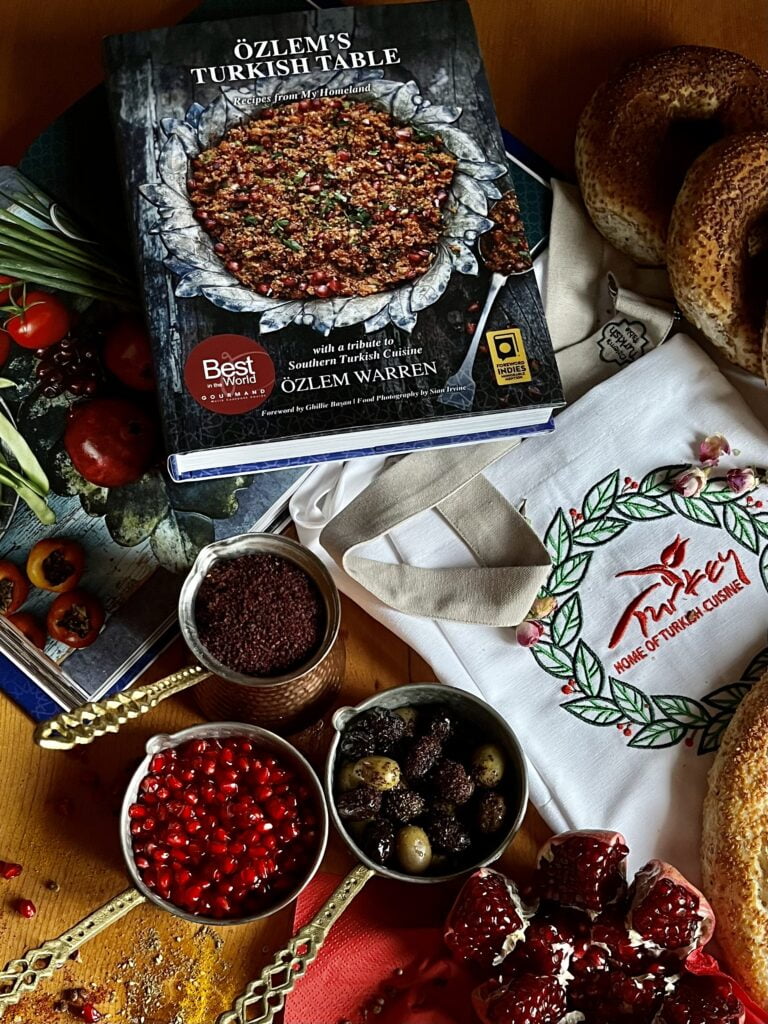
Özlem stayed with us last year when we held a wonderful cookery day of recipes from her book. She has raised a considerable amount for the people affected by the earthquake from further book sales in the UK. We have a mutual love for the cuisine, culture and heritage of the area and Özlem is a very supportive kind person.
The journey …
We set off on our journey with a packed car, people donated oranges, tomatoes, olive oil, olives (not the
best travel companions!) and much more! It was a long journey, over 20 hours, most of it spent behind HGV’s taking aid to the area in the pouring rain. It was good to see signs on the vehicles saying where the aid they were carrying had originated from. With a few hours break for sleep in the car and a bit of breakfast, we finally got to the area. It was strange that you didn’t see much at first, the motorways were being repaired, then as we progressed the earthquake destruction worsened. Eventually, we reached Adıyaman and could see the extent of the damage, then on to Kahta which was in better shape but not without its losses and damage to buildings.
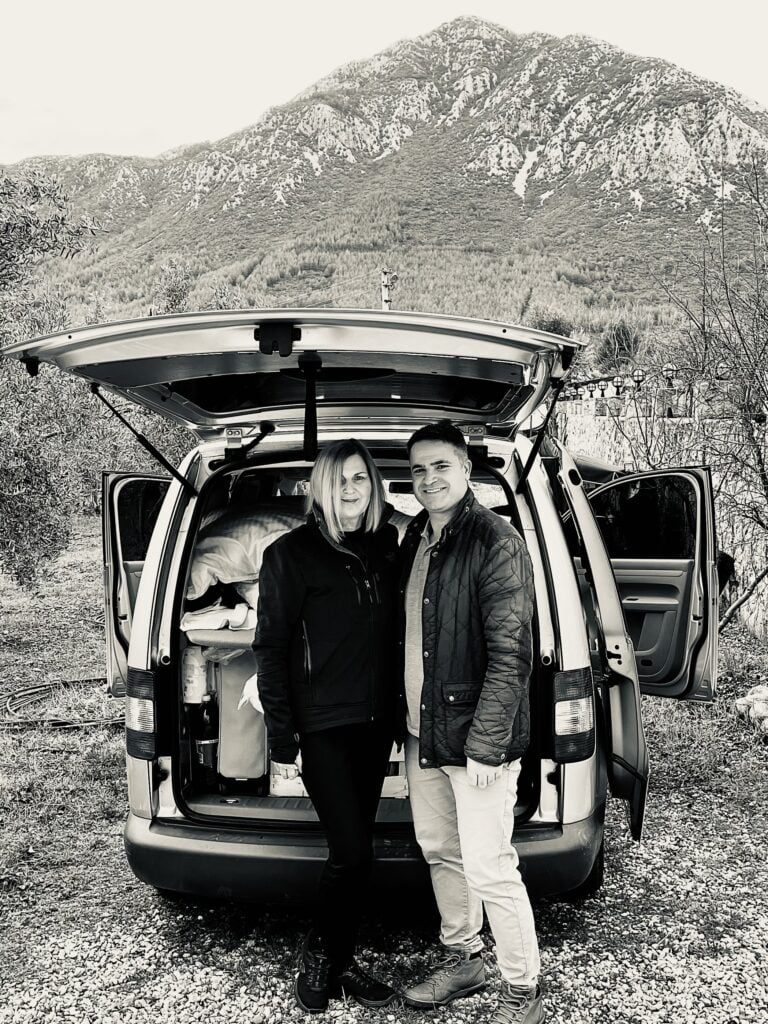
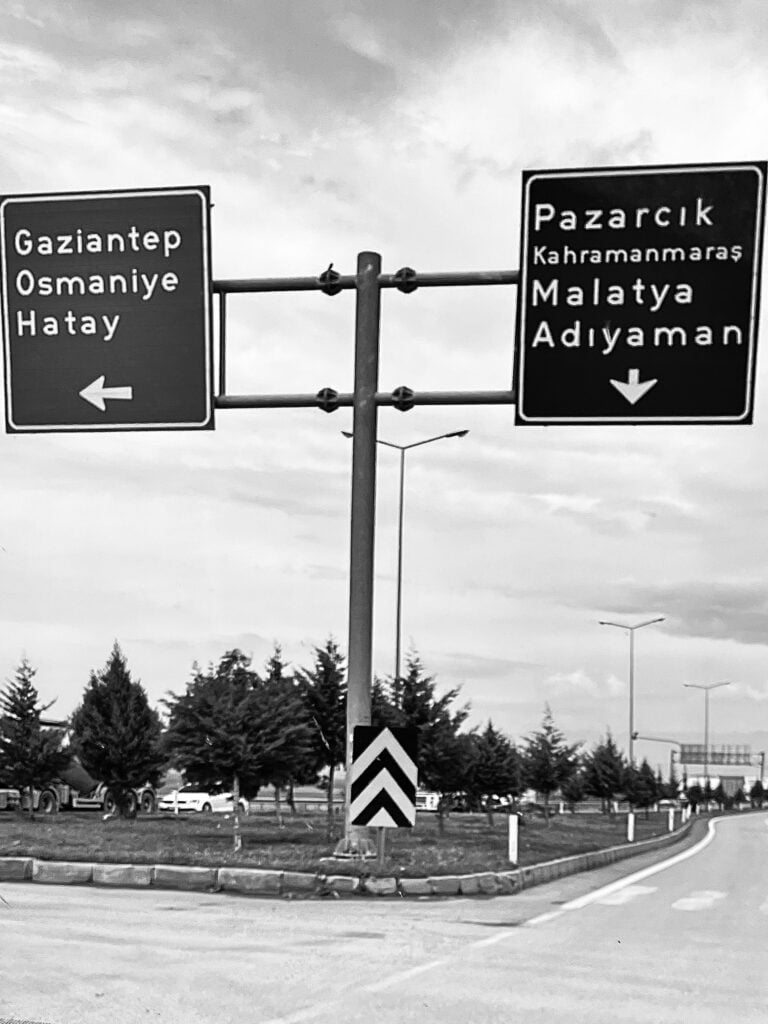
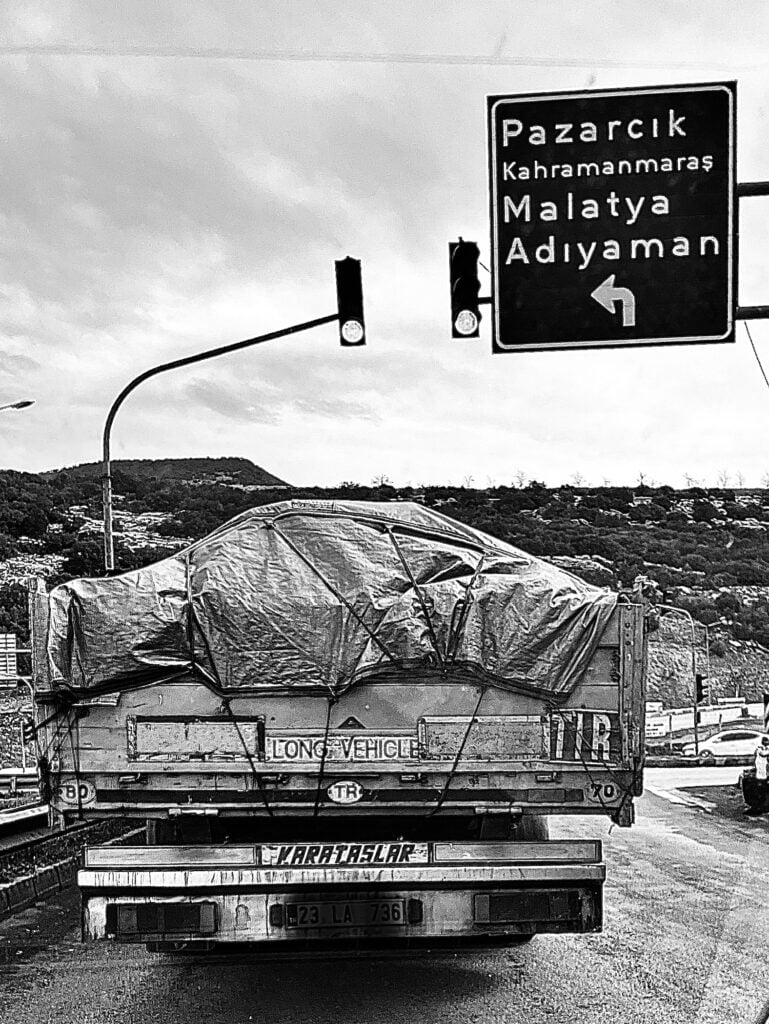
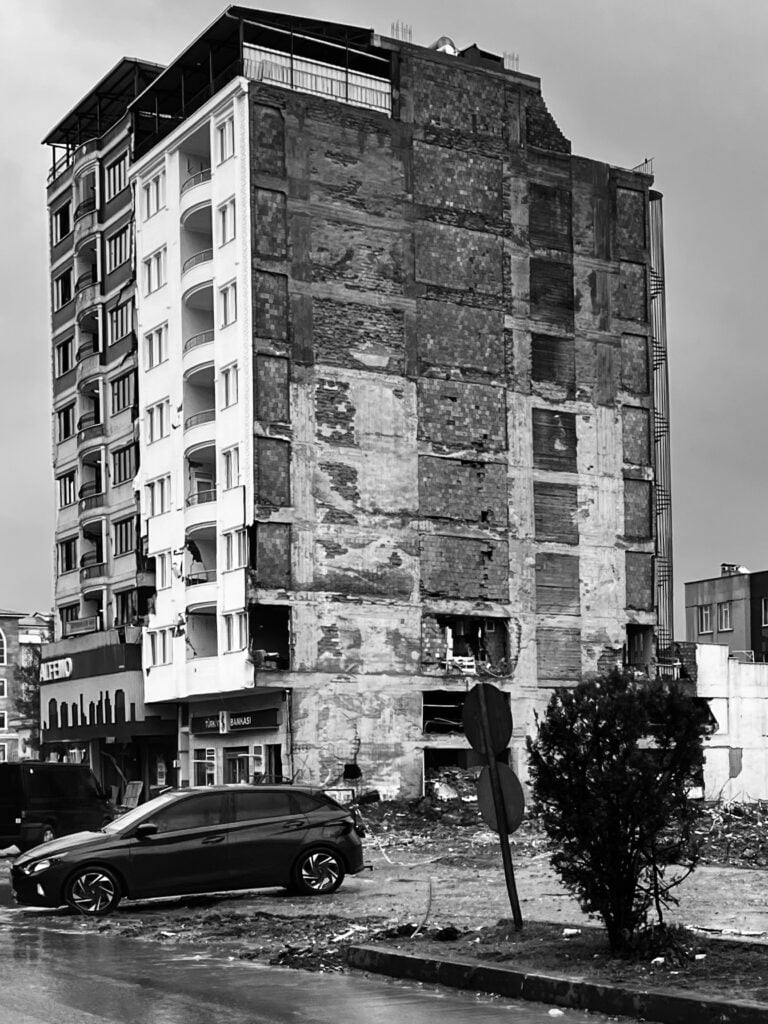
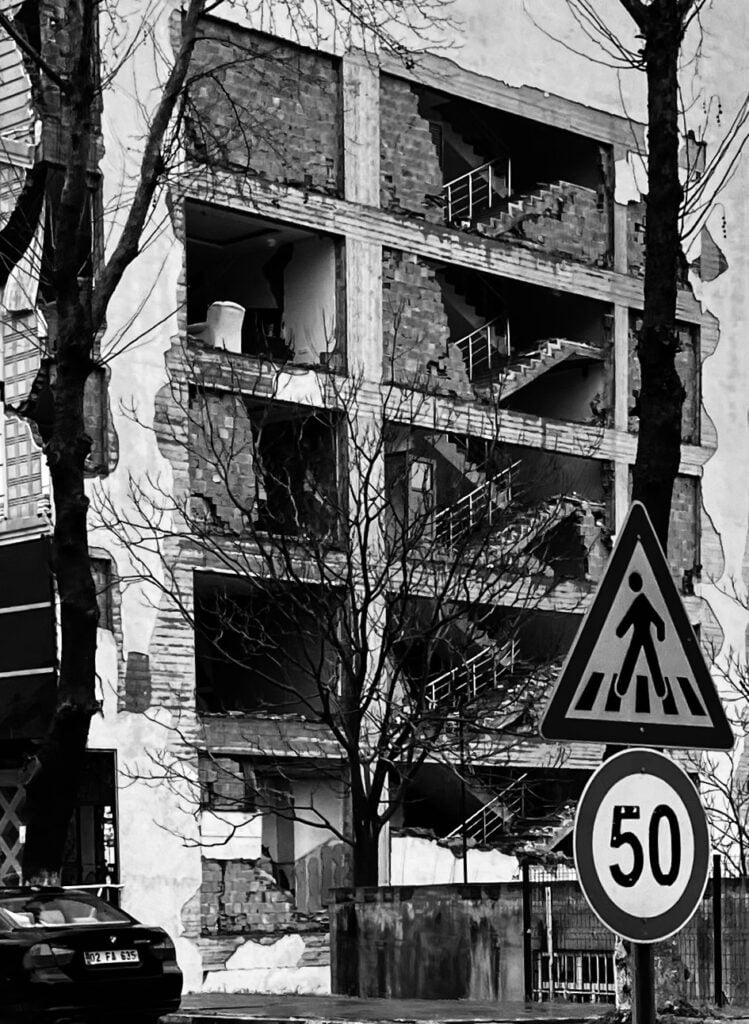
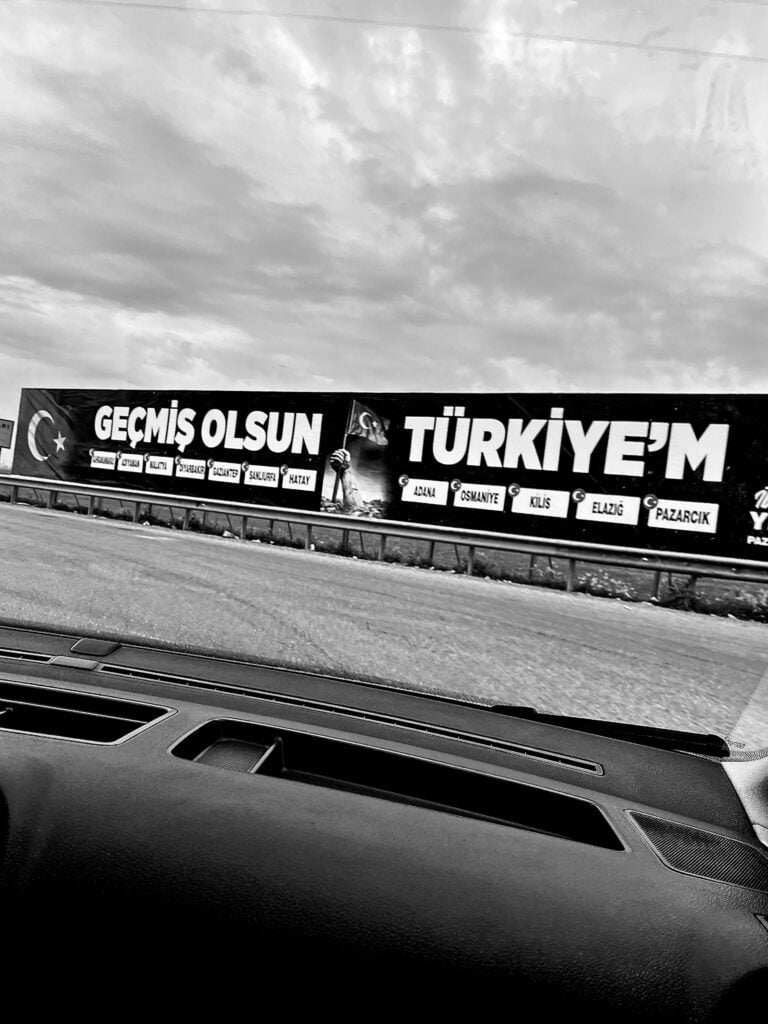
Adiyaman – four weeks post-earthquake …
Southeastern Türkiye is an area which is rich in tradition, culture and heritage which has been passed on to future generations. You have to respect that you are entering into a very unusual and sensitive situation, survivors are traumatised, and you’re not there to be anything other than a helping hand and a listener, respecting what others are doing and quietly giving where you can. It’s hard to see family, exhausted, emotionally drained trying to cope, women and girls are the backbone of their families, ensuring there is food and bread on the table and keeping the household in order and holding the family together. They give help wherever they can to their communities and sharing is a huge part of their culture, there is always a place at the table for a hungry soul.
My father-in-law is the manager of a charity called Empatika, a Non-Governmental Organization (NGO) Animal Rights Association that, under normal circumstances, takes care of street animals, farm livestock etc. Once the earthquakes hit, they became rescuers of animals and humans alike. My brother-in-law and sister-in-law became volunteers and organizers of aid arriving to the area which required storage until they could help distribute it to those in need. As there is a state of emergency, this scheme was allowed under the umbrella of AFAD. Empatika shared aid with us for children in need and their help and support was invaluable.
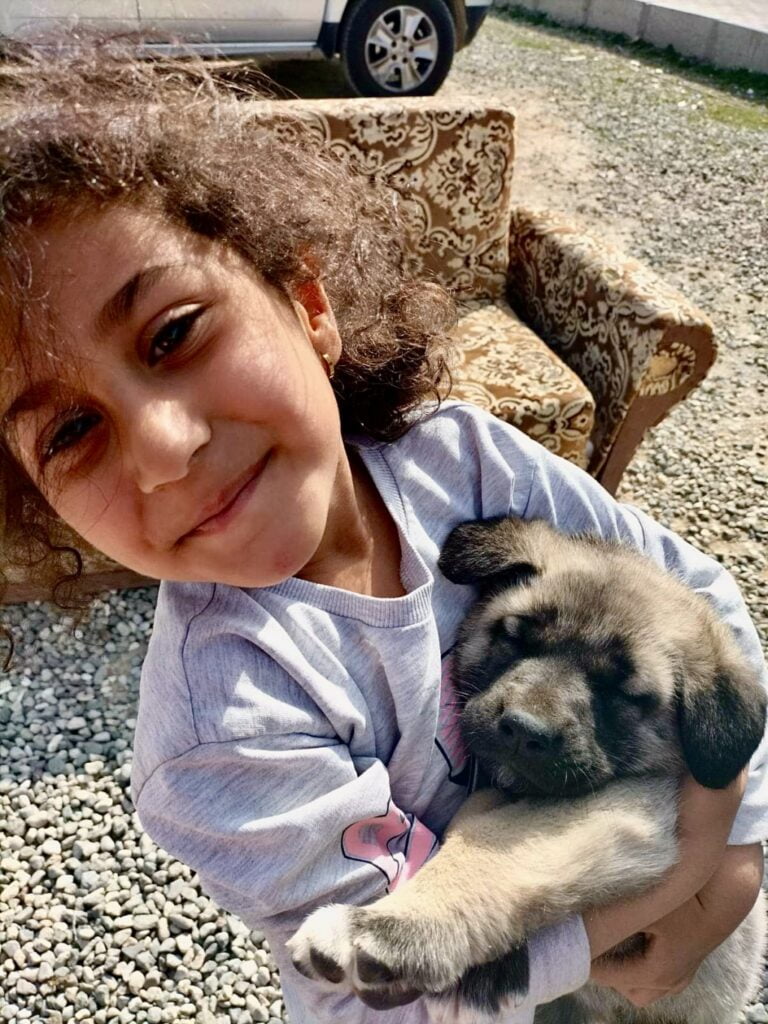
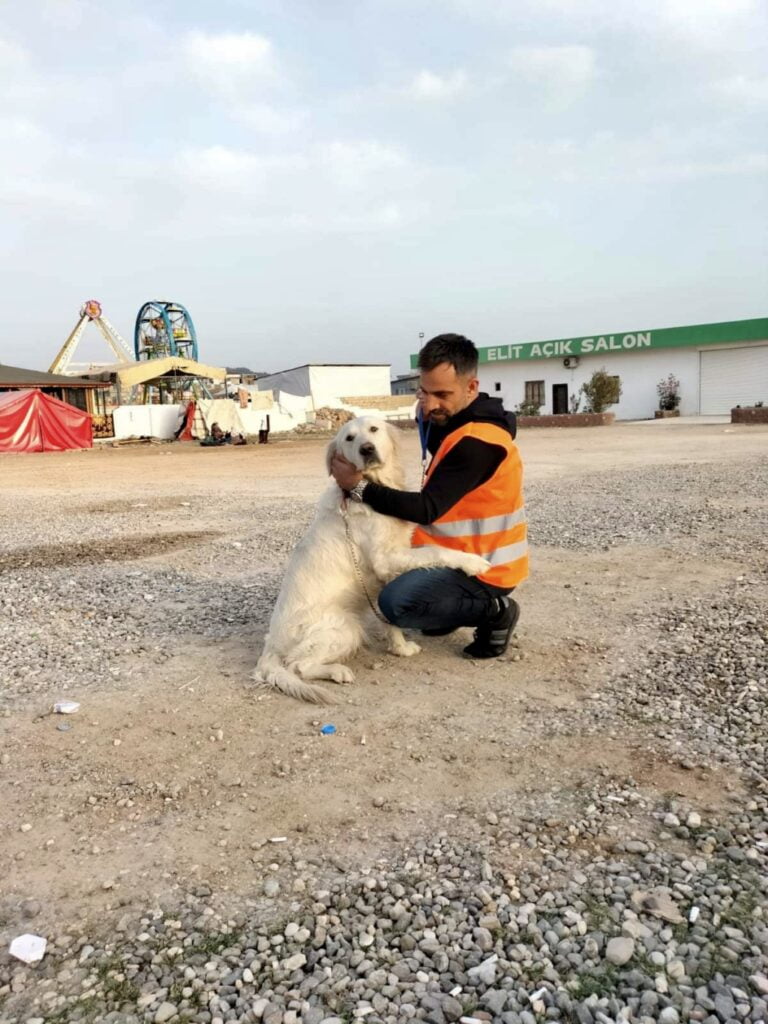
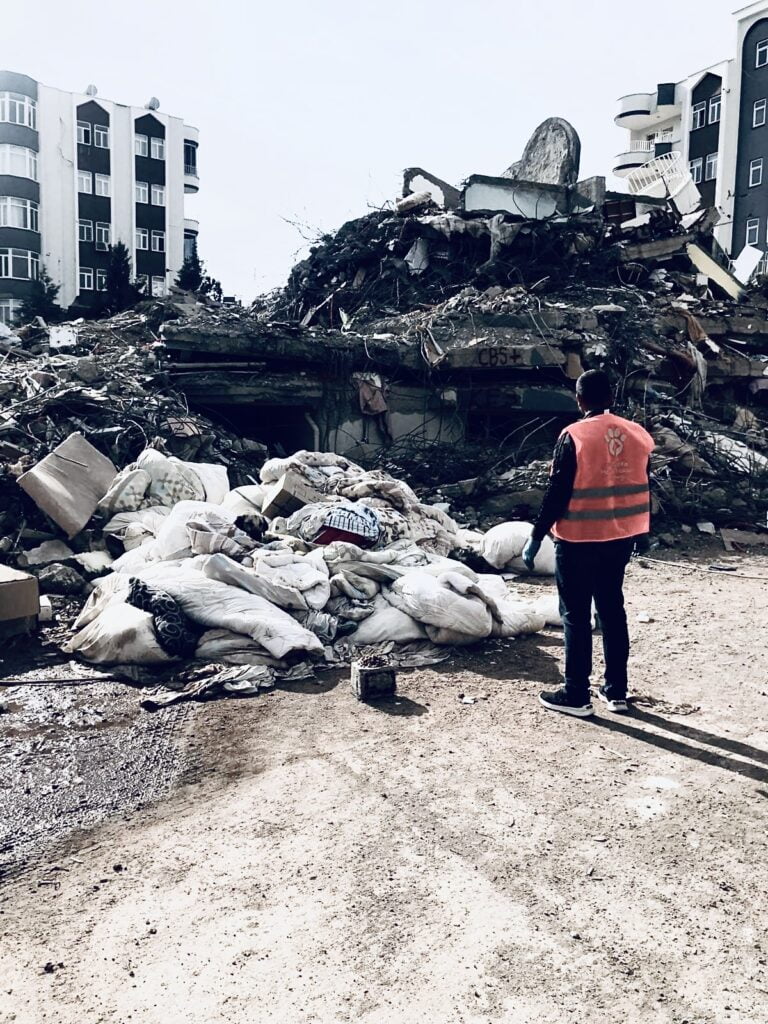
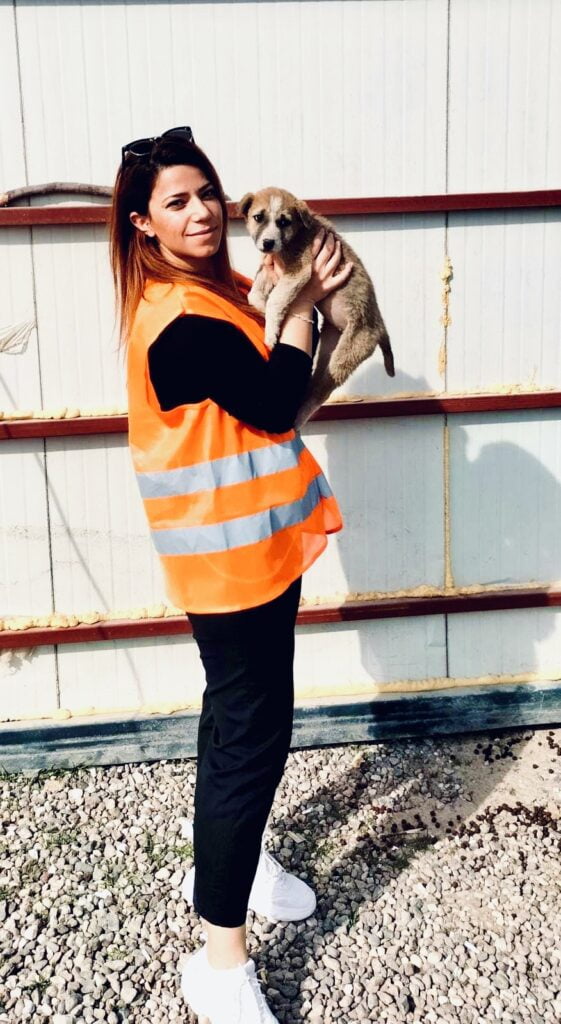
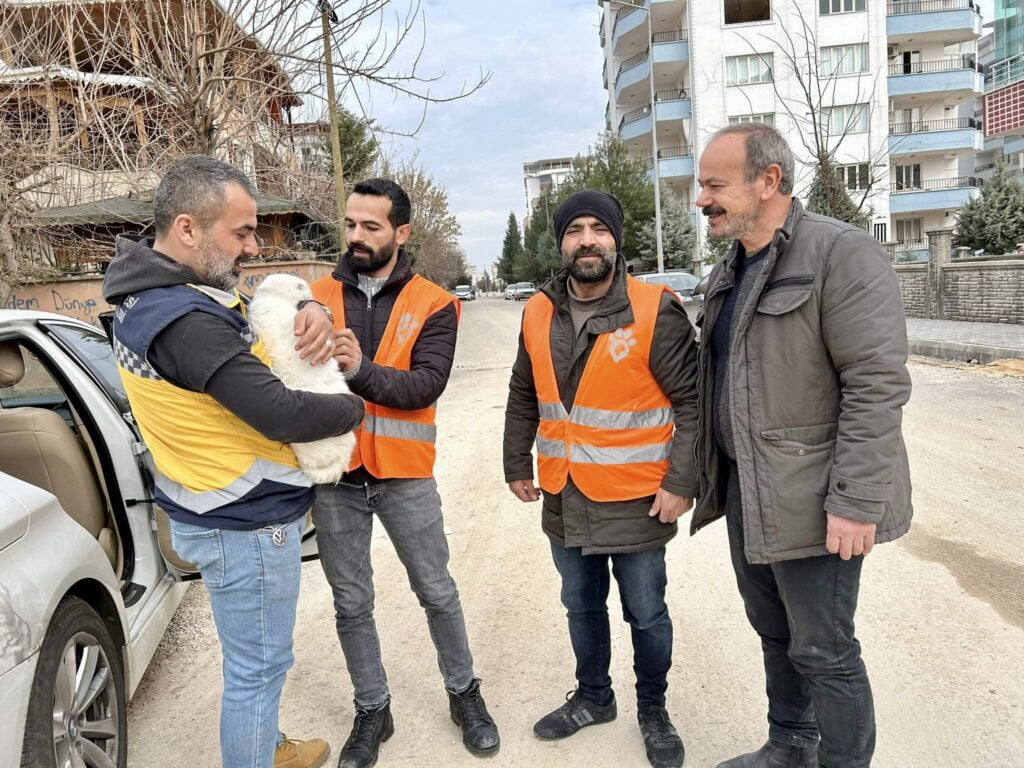
I had an overwhelming feeling of sorrow when I saw the children there, they react differently to loss and their loss is unfathomable. Children don’t cope with sadness for too long, they find ways to cope, play with friends to get rid of their feelings, they choose when to dip in and out of their grief when they receive the appropriate support. But what happens when your home, maybe part of your family, friends and belongings disappear and all familiarity has gone? They were catapulted into the unknown, living in tents, with poor sanitation, little or no washing facilities, and queuing for food and aid. Overcrowded living conditions in tents cause illnesses, respiratory infections, and scabies is widespread. Unhappiness and tiredness are so apparent in their faces but yet they are so good and well-mannered. Unicef expects that 2.5 million children are in need of humanitarian support.
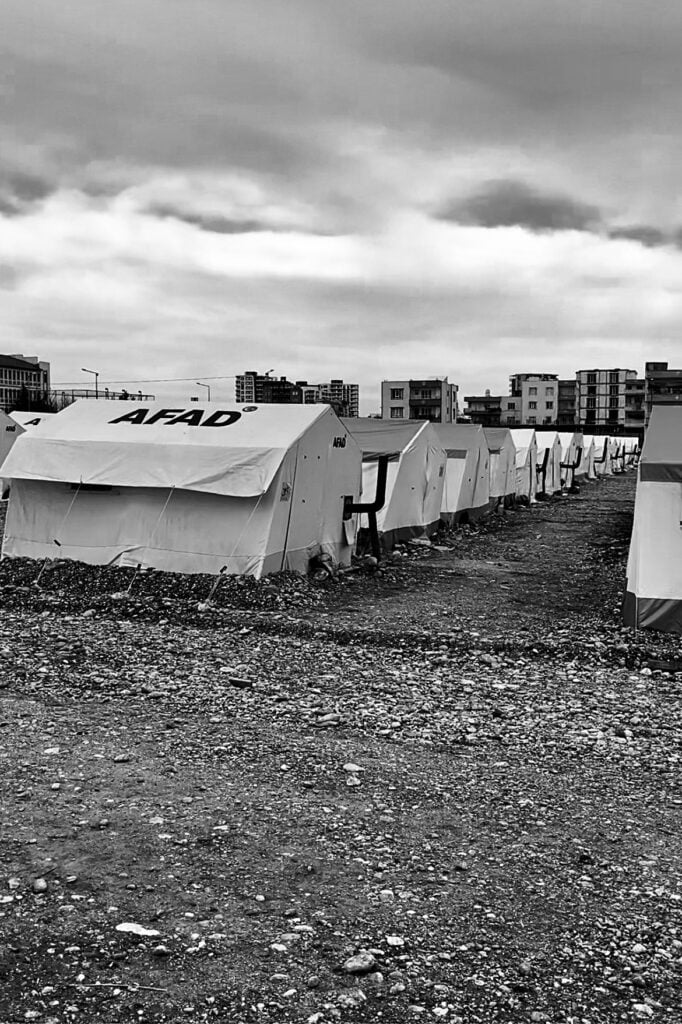
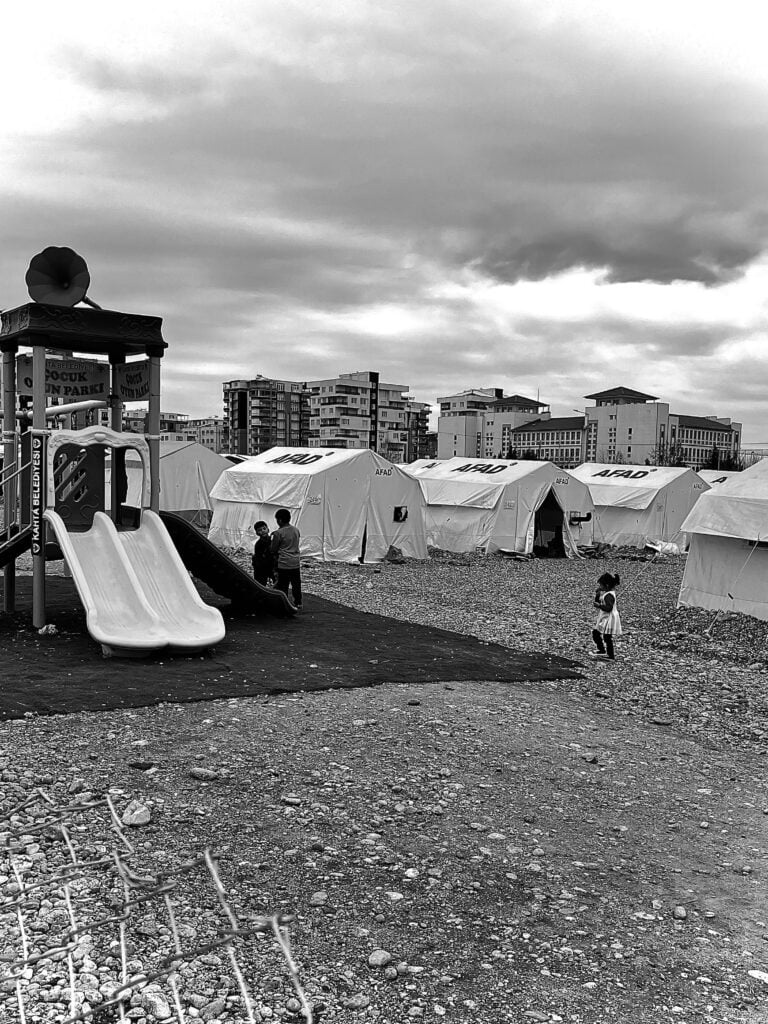
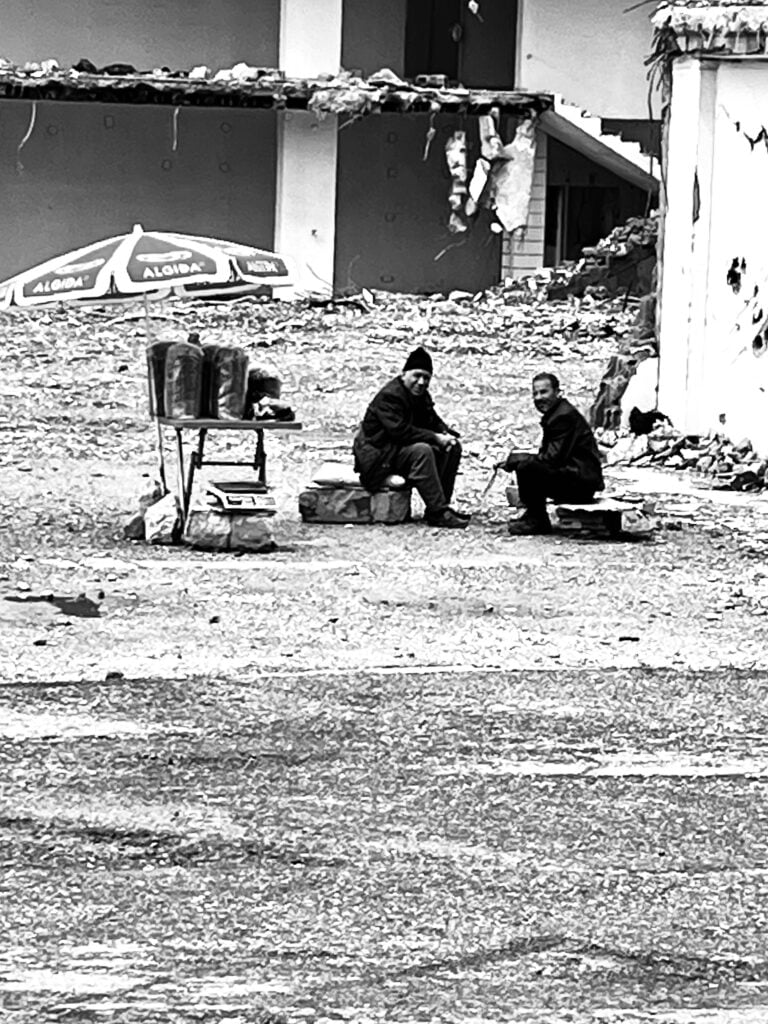
My sister-in-law introduced us to Adem, a fellow chef who gave up his restaurant and turned it into a community kitchen which tirelessly runs with a great team providing three meals a day to tent cities, often financing produce himself. I can’t praise them enough. Adem ensures his meals are nutritious, high in calories and tasty, it is extremely well planned and is kitchen prep is on a large scale, cooking long hours then delivering meals and giving them out. Along with my husband, sister and brother-in-law, we set out to provide one-off food treats for the kids in one of the tent cities. we could use the fresh produce that was donated and we sourced and purchased everything required locally to support businesses in the area. Absolutely nothing was in short supply or wasted. There are fabulous networks of feeding stations, community kitchens, local council soup kitchens, and international organisations delivering food constantly to areas. I can say absolutely no one goes hungry and our effort was to give a little happiness to kids.
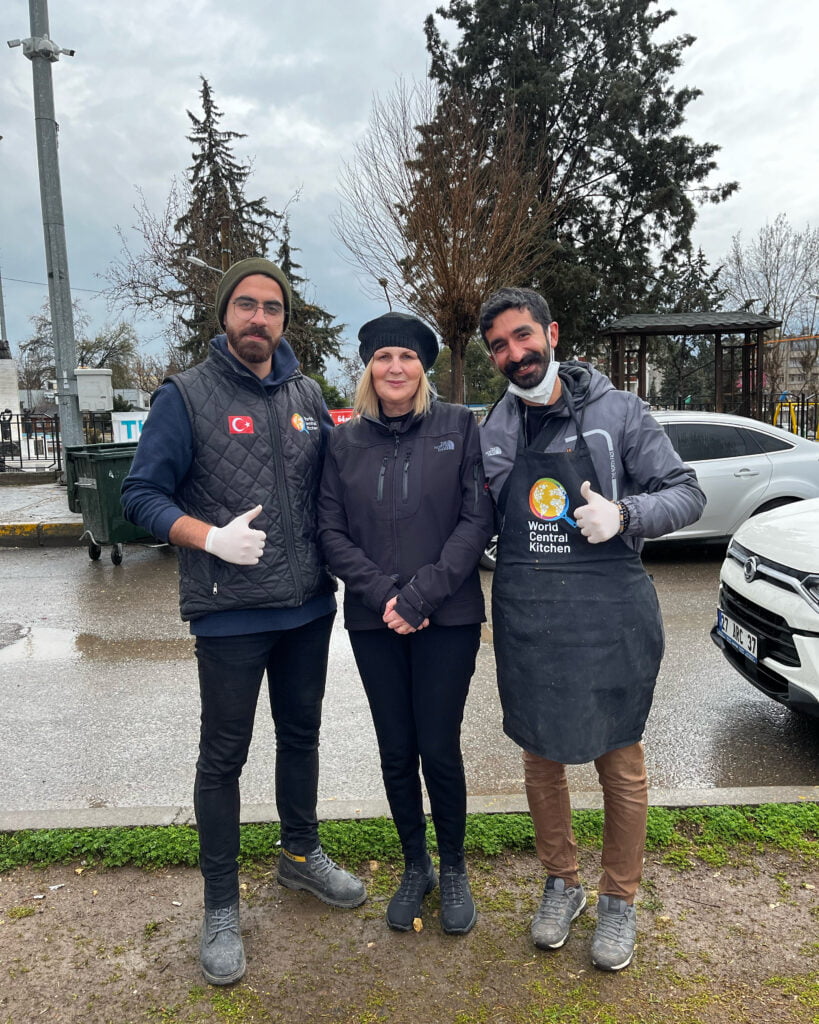
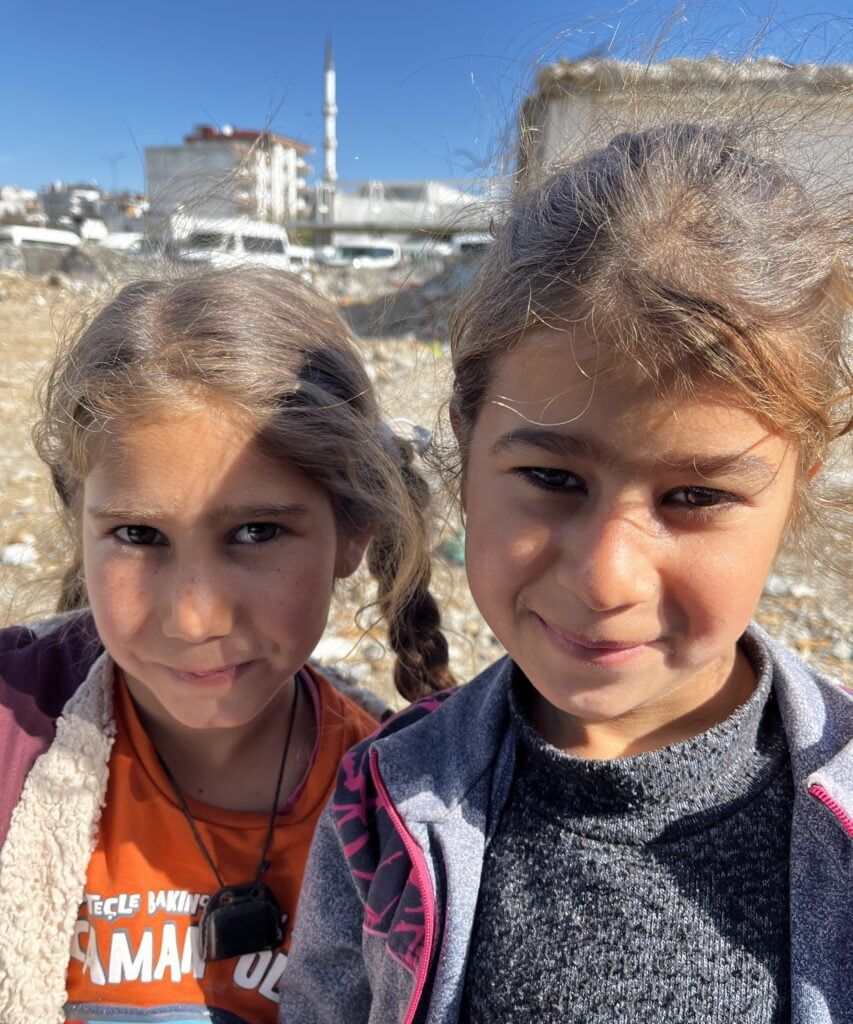
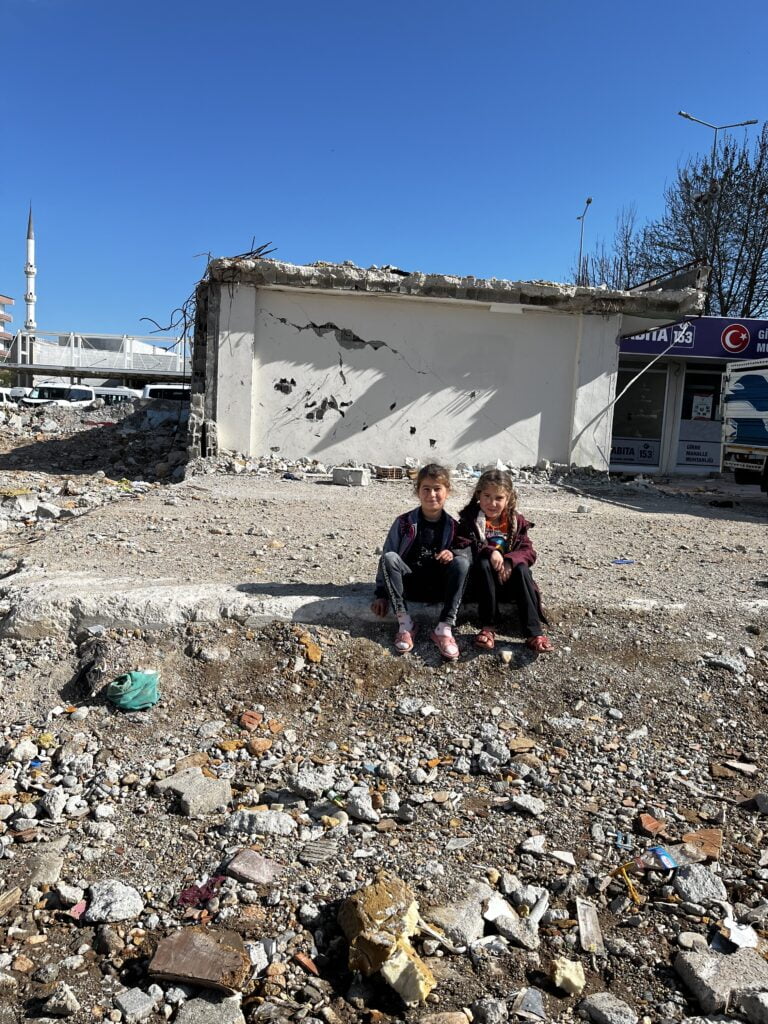
It was a pleasure to keep our donors up to date with where their donations actually helped and it was a big responsibility for me to get it right, but with a little thought and love, a little goes a long way in the grand scheme of things. ‘If you can’t feed a hundred people, feed just one.’
We decided on breakfast for 300 hundred children and treats they wouldn’t normally receive. We ordered 600 small breads for that morning, they were just out of the oven and fresh for their breakfast. Adem’s team prepped the breakfast boxes the evening before. The children had tomato, cucumber, cheese, butter, chocolate spread and jam, a juice box, an orange, a chocolate croissant, a packet of wafers and a coconut mallow biscuit for later, and Empatika kindly donated sweet things too.
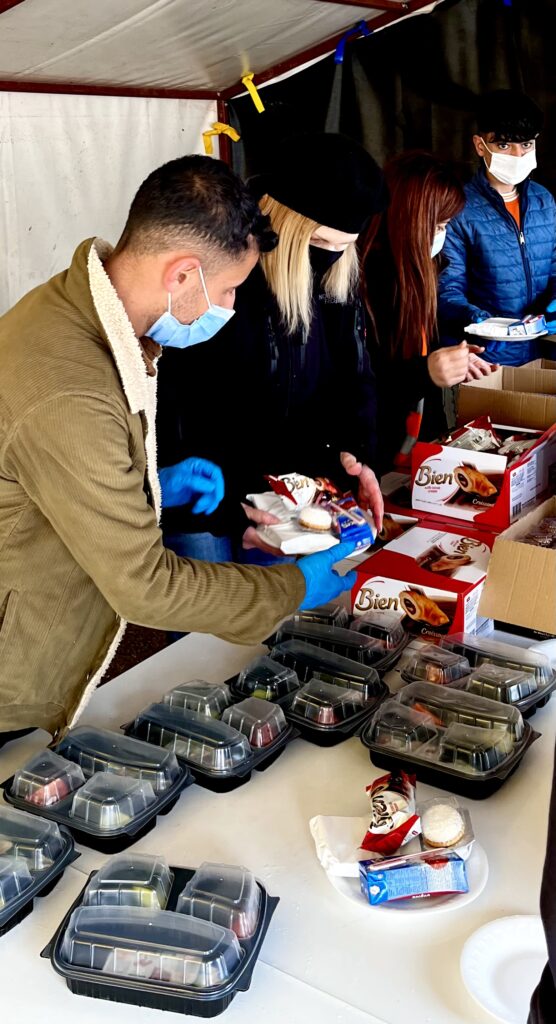
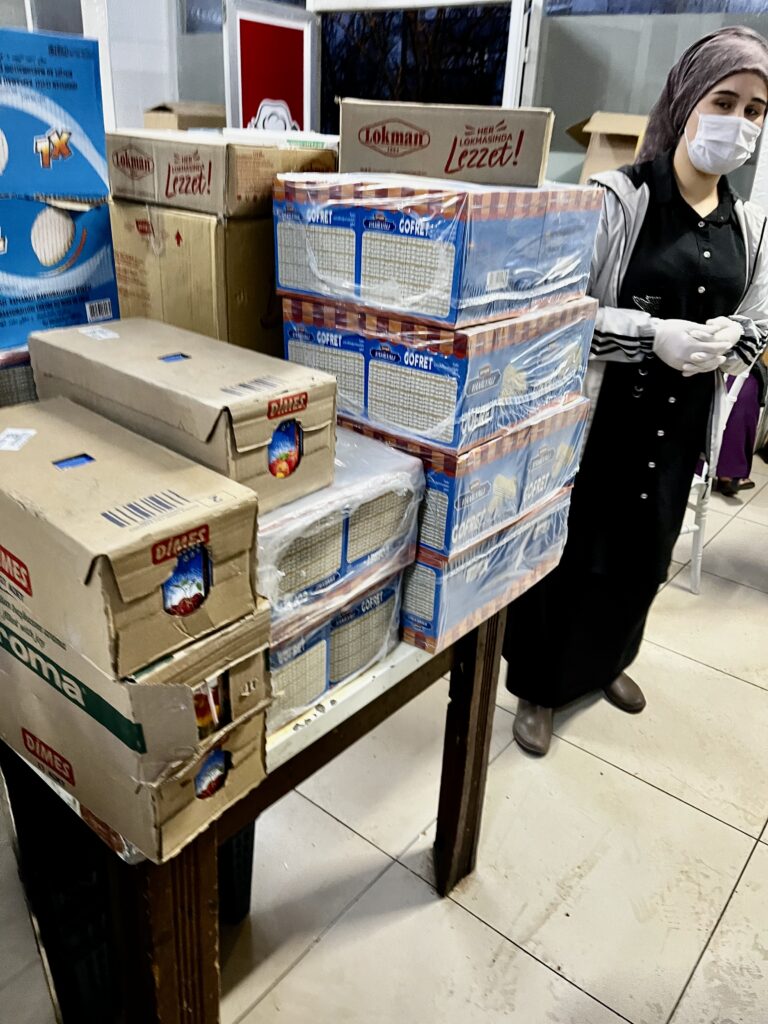
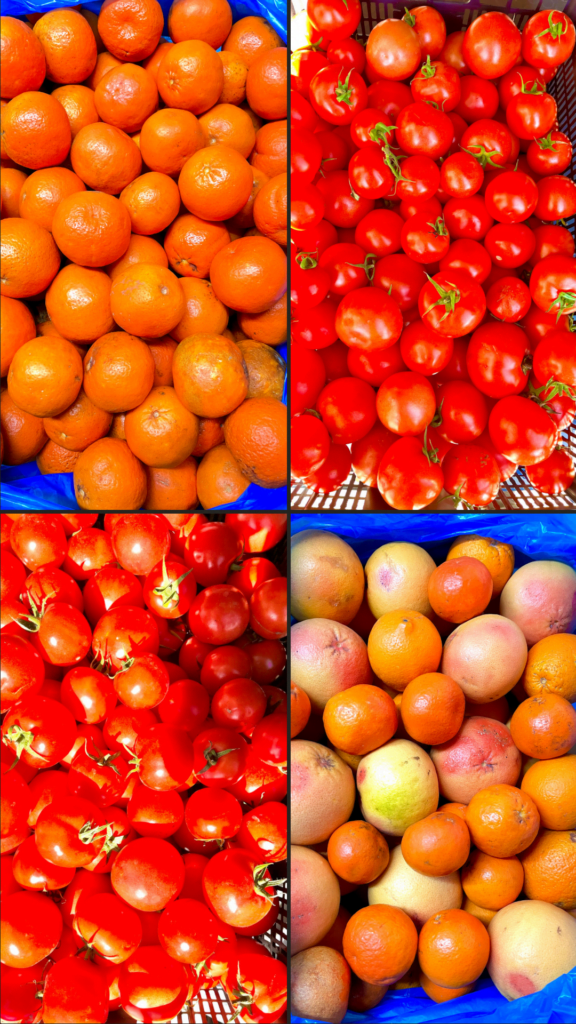
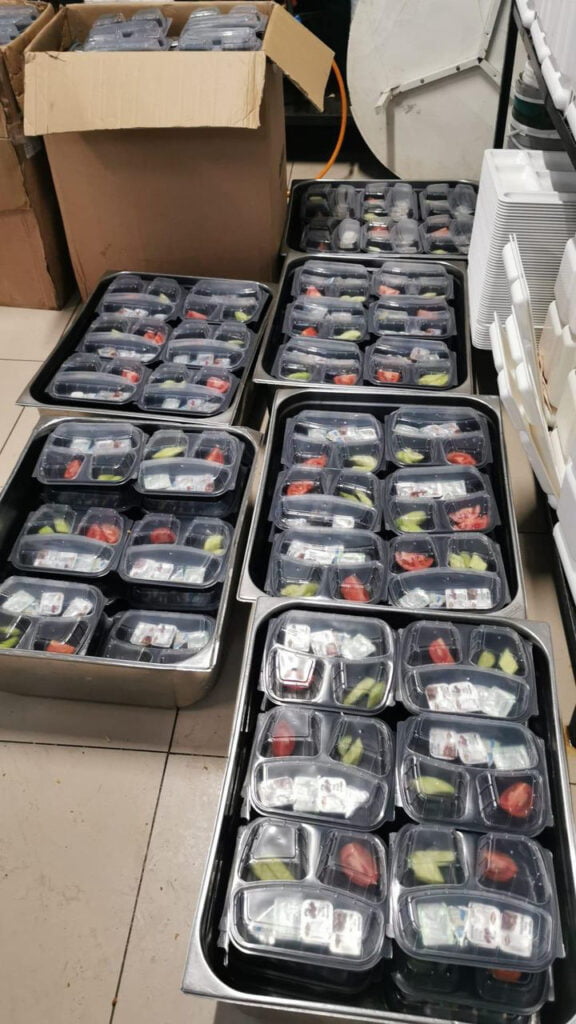
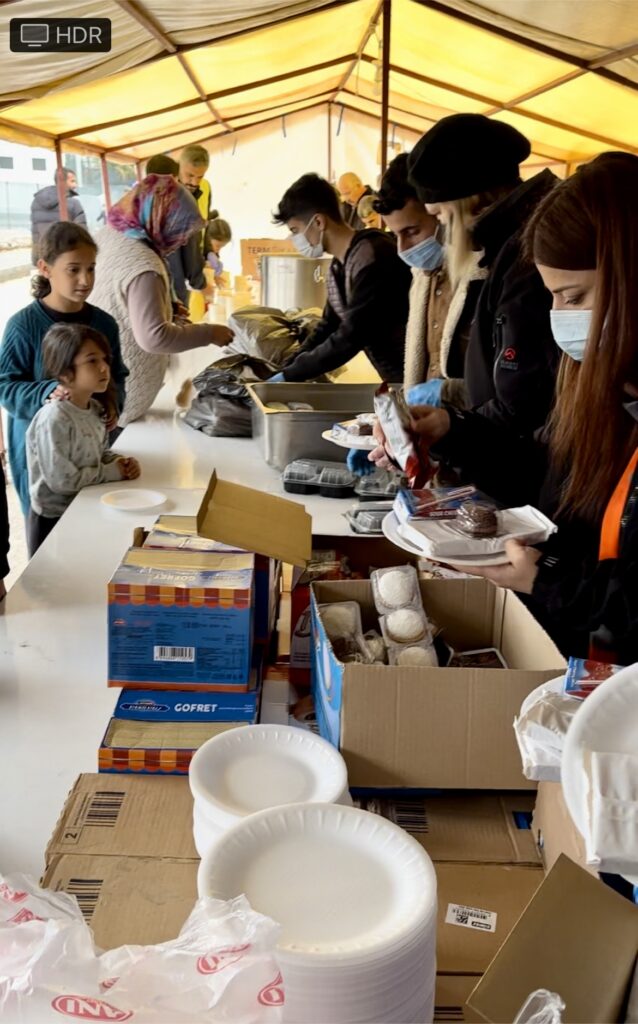
You are looking at children whose reactions are very different than normal, no smiles or laughter, some don’t come to collect the food as they are shy and just choose to keep their distance. One such girl stood on the opposite side of the road, we tried to coax her over but to no avail. My sister-in-law (Songul) and I ran over to get her, Songul had a bad fall but she dusted herself down and gave the girl her treats. At the end of serving, we took Songul to the hospital where she was found to have broken her arm. She is recovering well and still helping and running around! We are both mothers and would not have changed that morning for the world. Just to add when we arrived to set up breakfasts, we heard a little boy say ‘It’s not soup this morning’ and that’s just fine by me if we made just a little difference to their morning – no soup, and smiles required.
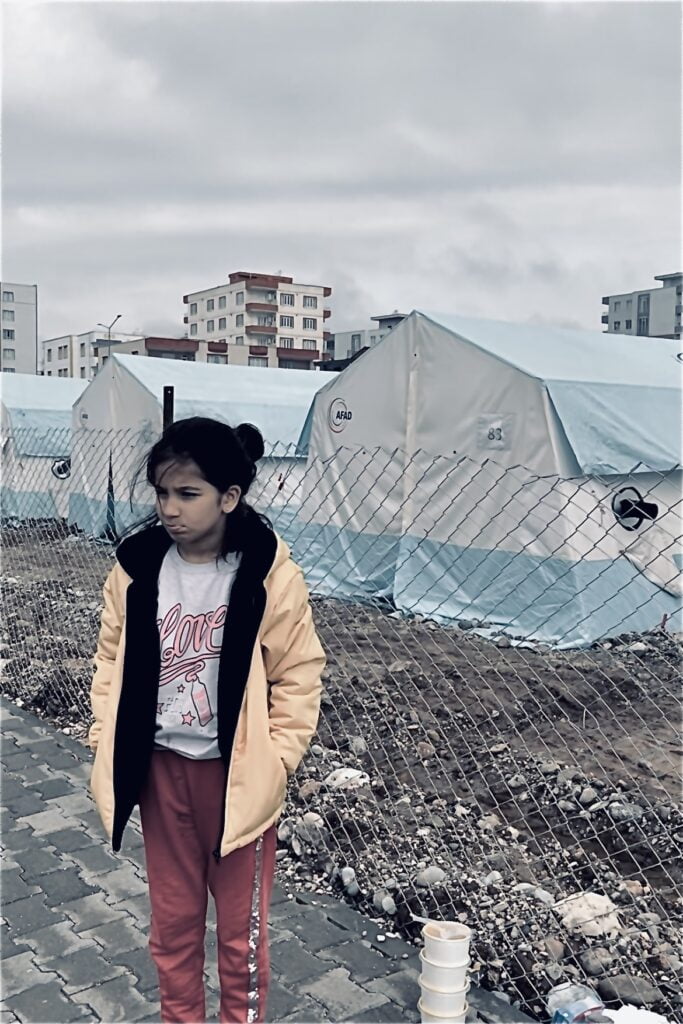
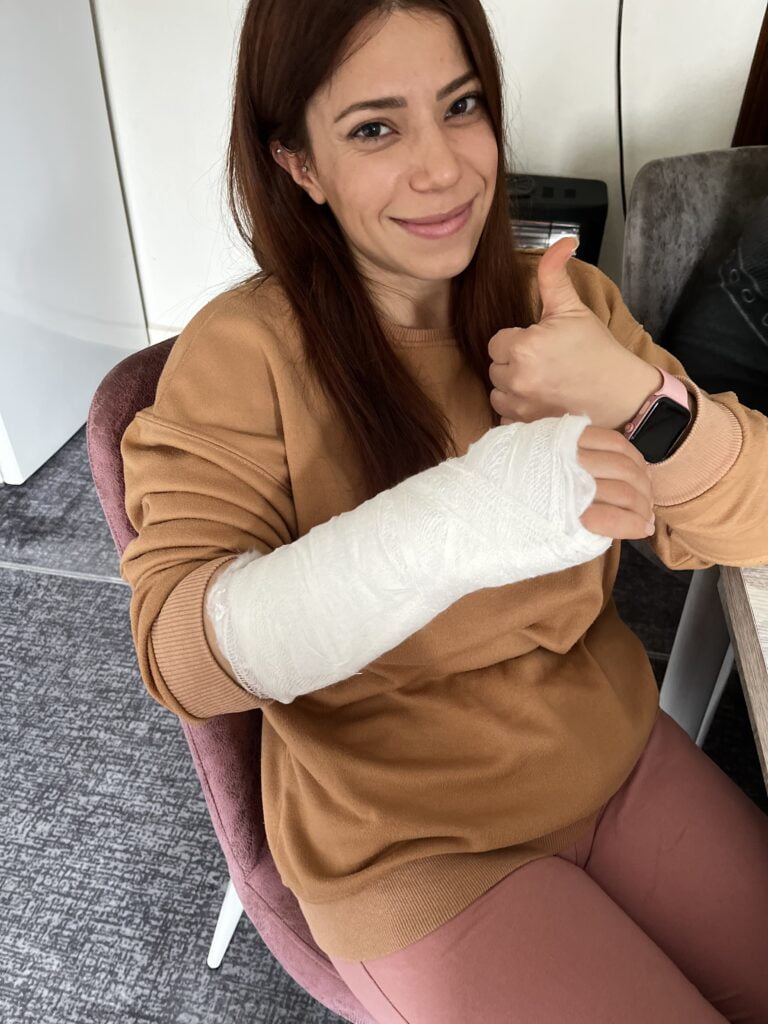
In the following days, I found a charity in Antakya, where Özlem is from, that needed baby and mother items, which we had already purchased thanks to a contact in Antakya who introduced me to a lovely
lady called Sevel, who normally runs a cooperative for women making handmade traditional products. She was able to distribute donations to expectant mothers and children. Perfect! We dispatched via cargo, 12 boxes of baby and woman’s toiletries, hygiene products, nappies, baby food and milk, baby clothes, sanitary and nursing mother products, donated toys and children’s clothes, and we were also helped by invaluable donations from Empatika. It is so lovely to see pictures of some of the children receiving things when the boxes arrived and Özlem’s donation covered cargo costs to the area, which connected everything perfectly.
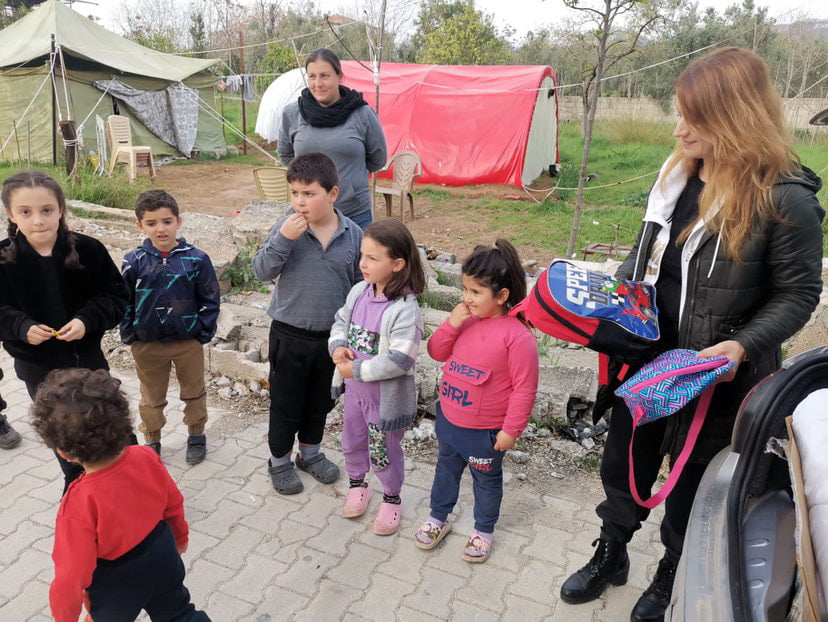
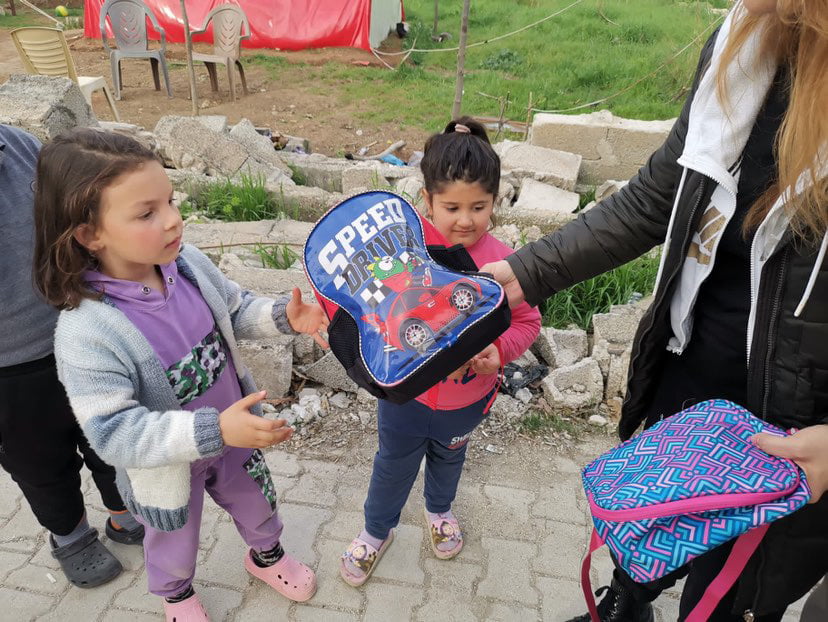
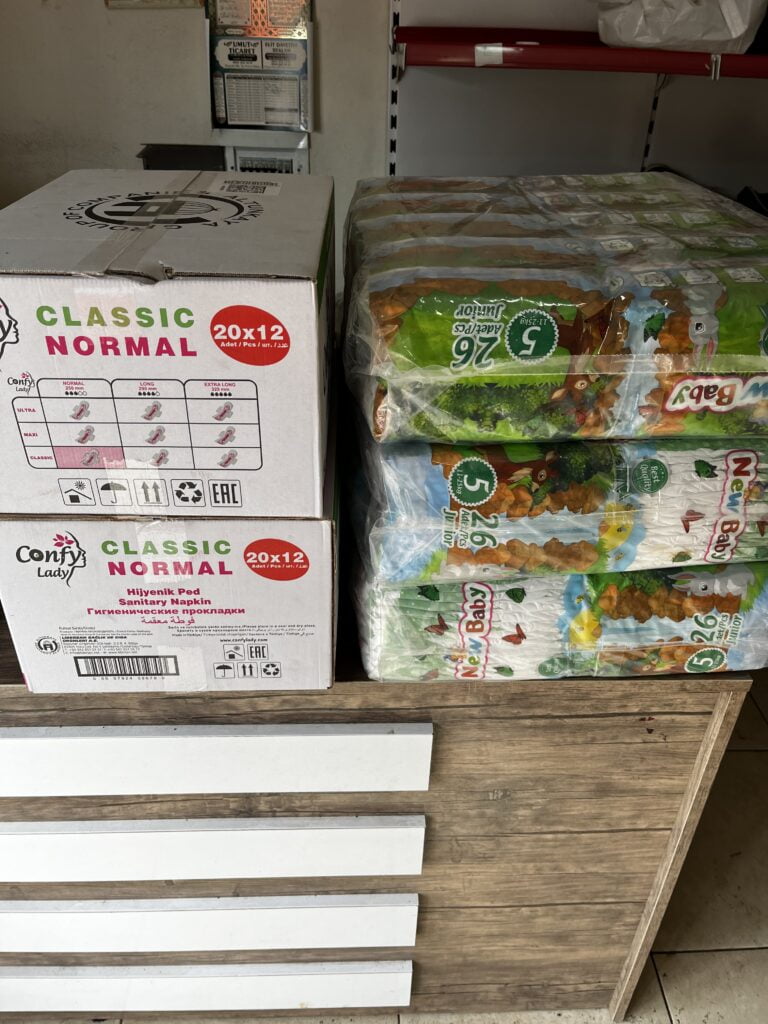
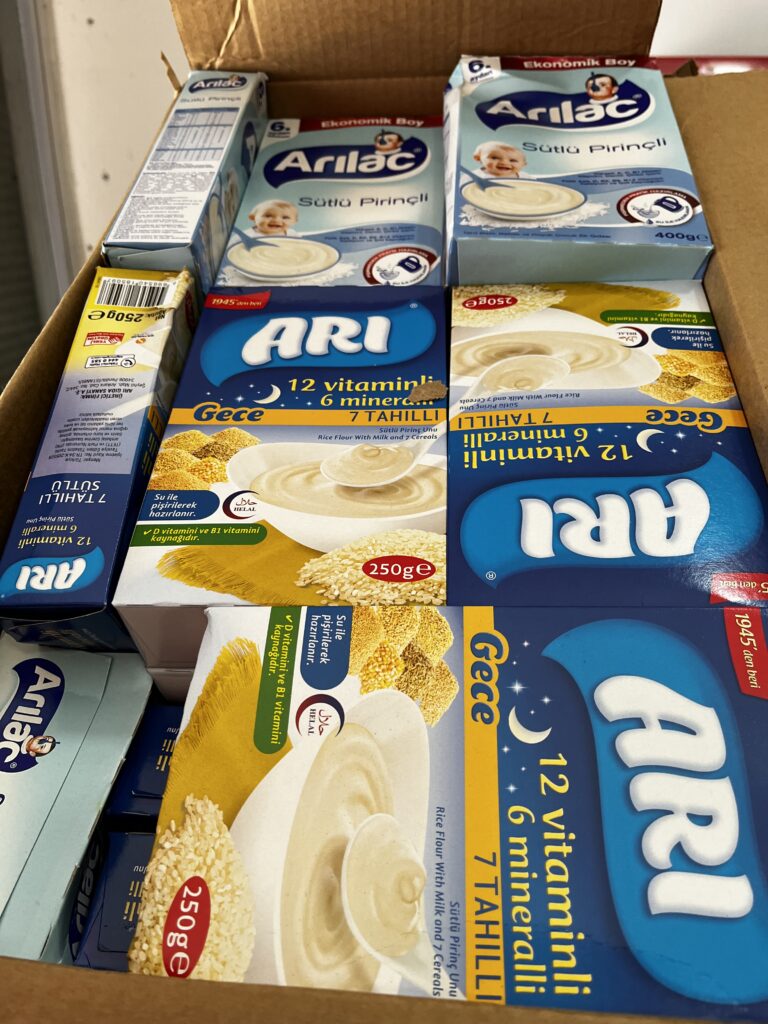
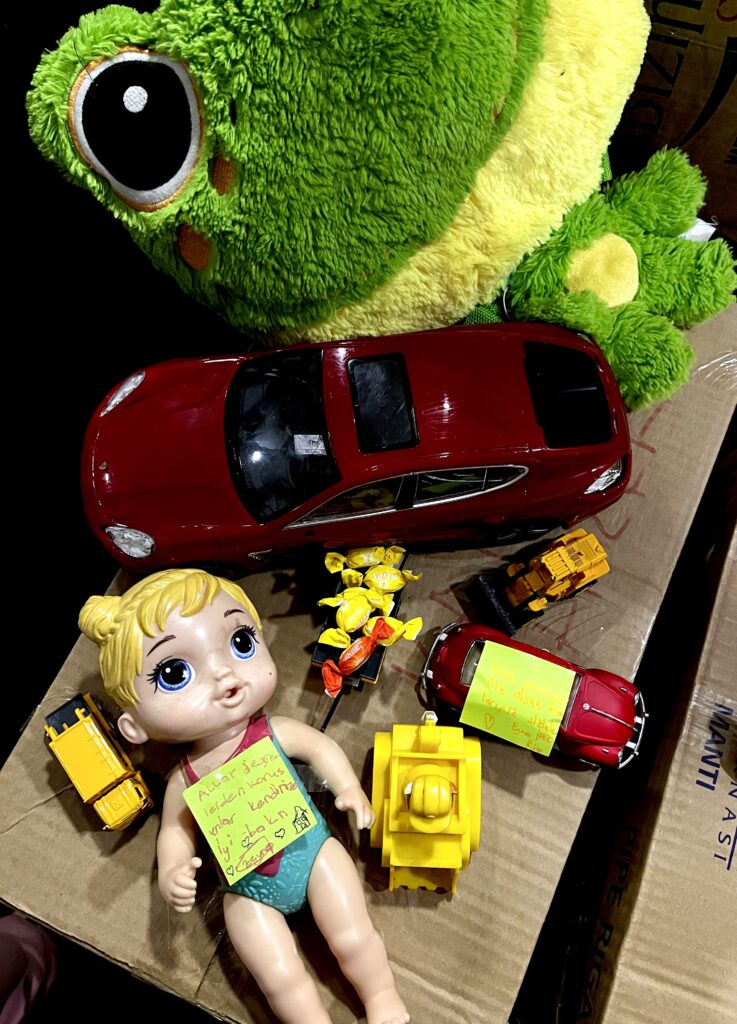
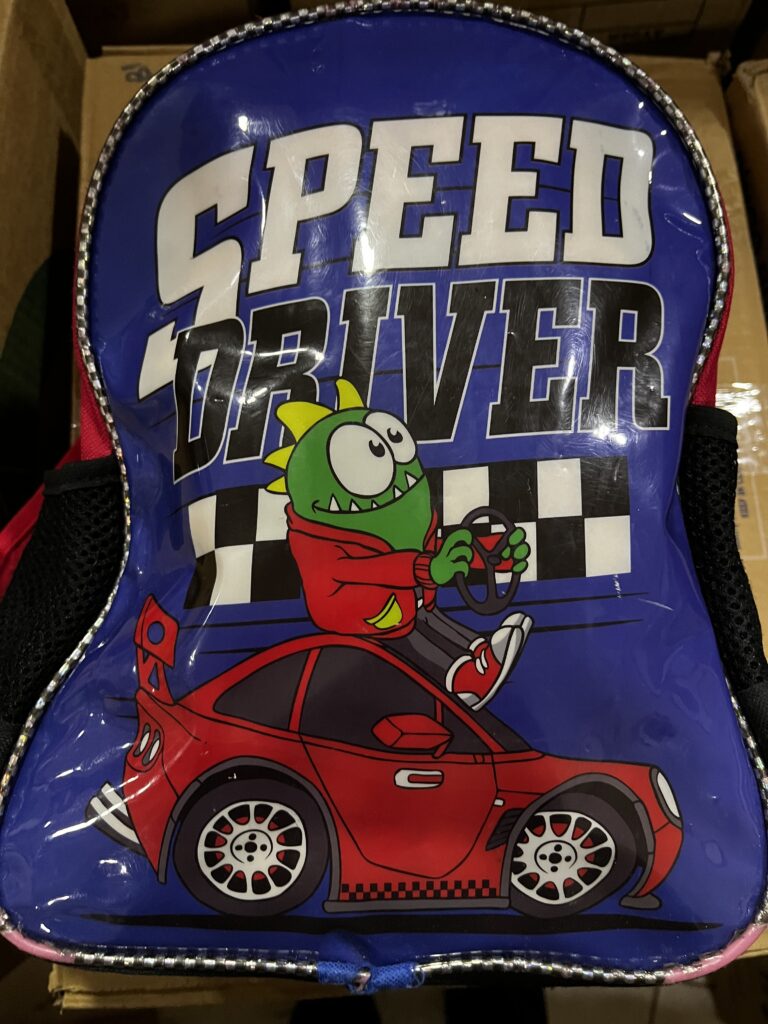
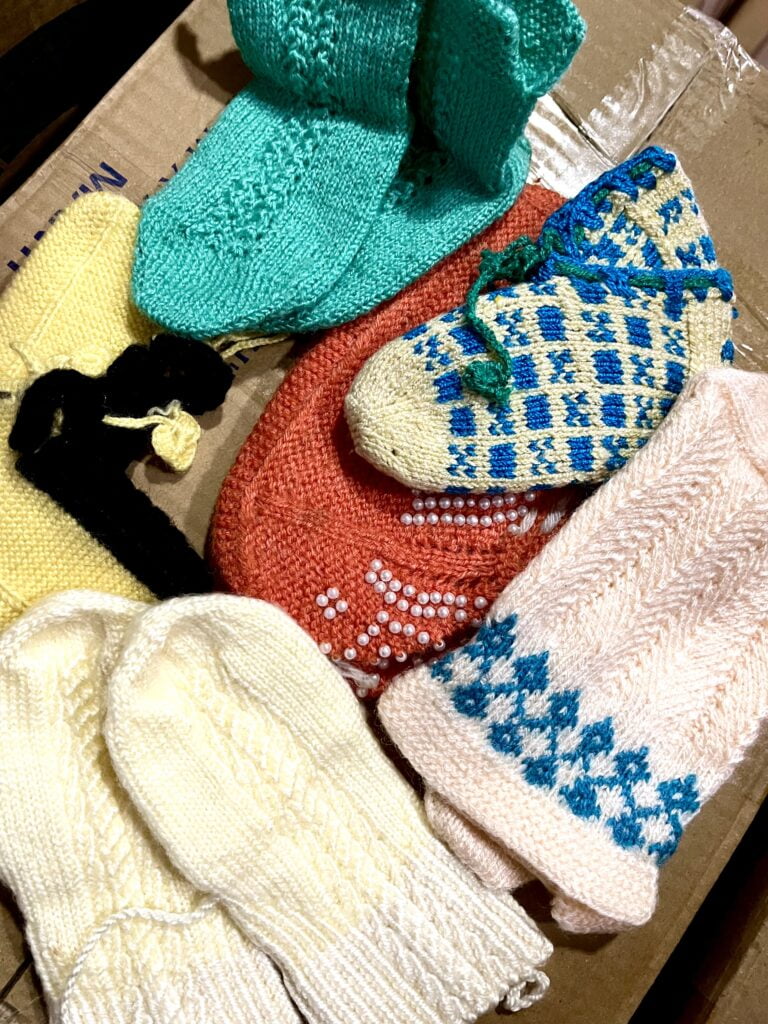
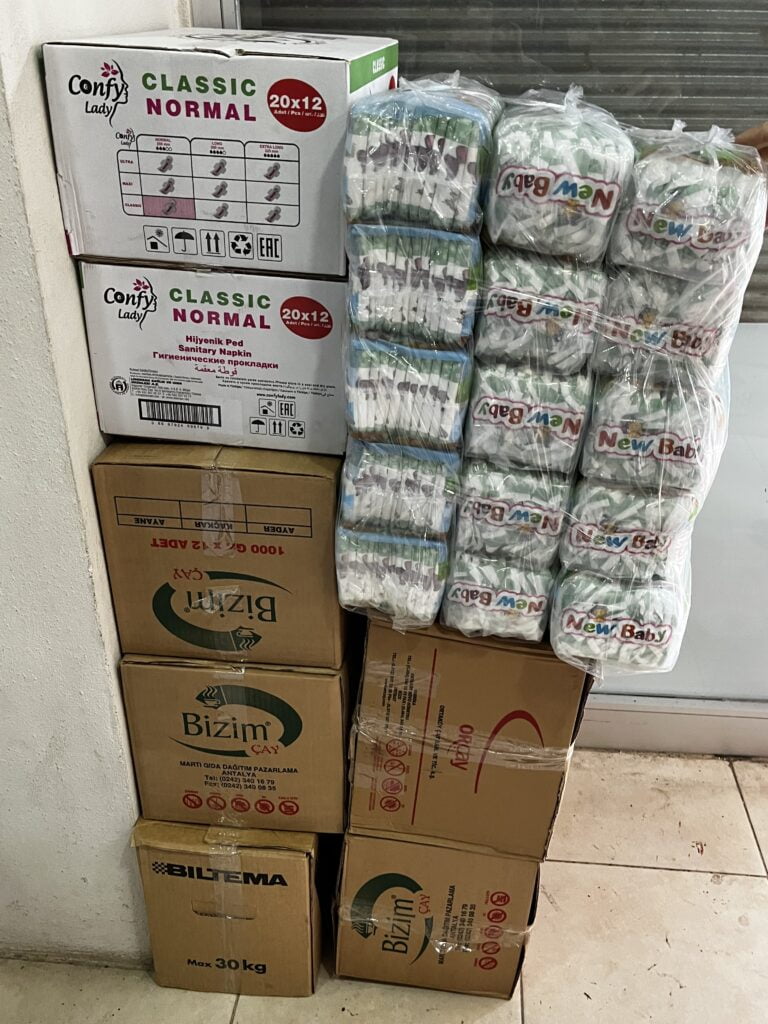
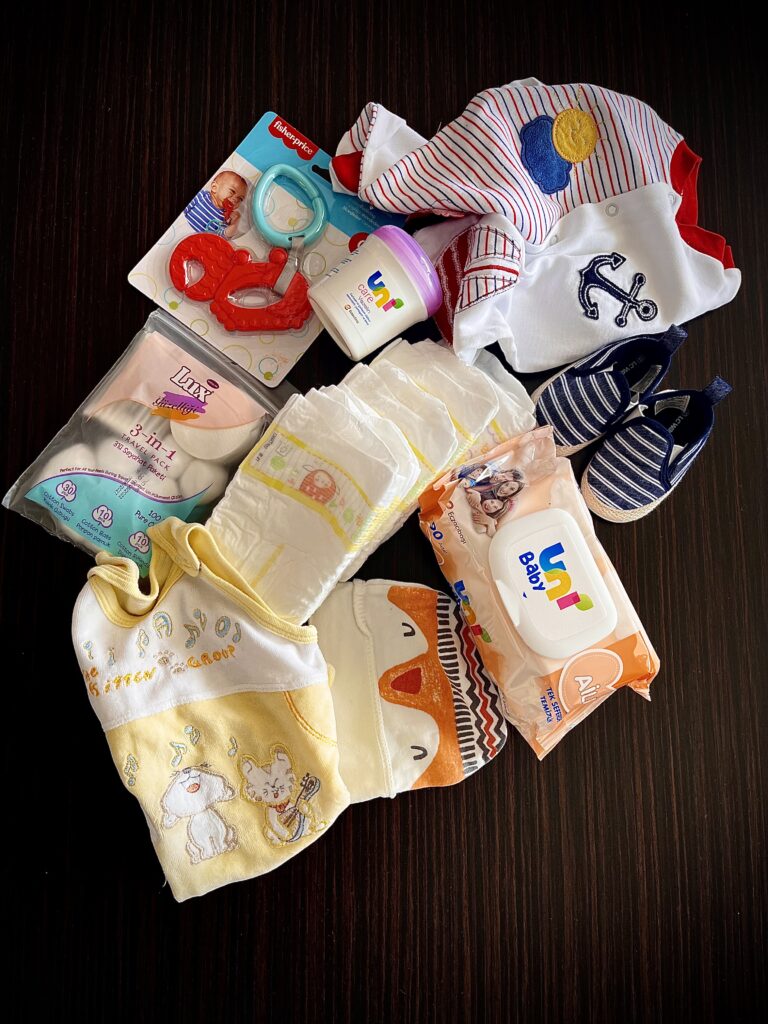
The day before we left for home we arranged delivery of 17 kilos of Tulumba, a deep-fried dessert
soaked in syrup to be delivered on the first day of Ramadan to the same children. I will also be arranging Bayram treats and food for the end of Ramadan through Adem’s kitchen. Ramadan will be very different this year, people fast to emphasize the less fortunate, but now they have become the less fortunate and are suffering beyond measure.
Let’s not forget them …
We will continue to support Adems kitchen and people like Sevel and raise funds for children of all ages. This will not be a quick fix; container cities will hopefully replace tent cities and then eventually housing. Let’s not forget them and the conditions they must endure and support them, children need to feel protected and secure.
The February 6th quakes killed more than 50,000 people in Türkiye and around 6,000 in neighbouring Syria. Approximately 2.5 million people are still living in tents.
“Food is national security. Food is economy. It is employment, energy, history. Food is everything.”— Chef José Andrés, founder of World Central Kitchen
Thank you to both our families, you have been a shining example to others. Mehmet’s family have all
now moved back into their respective homes, they still feel uneasy but are very grateful to have what they have and are still helping their community. They are coping with their own loss and grief admirably.
To all our donors, we really would not have started this without you and to everyone who helped us achieve what we accomplished – Thank you – Geçmiş Olsun Türkiye’m
If you wish to help please contact us via:
Sumak Café, Üzümlü: Facebook: https://www.facebook.com/sumakcafeuzumlu
Instagram: https://www.instagram.com/blossomhill_uzumlu
Email: info@essenceofturkey.com

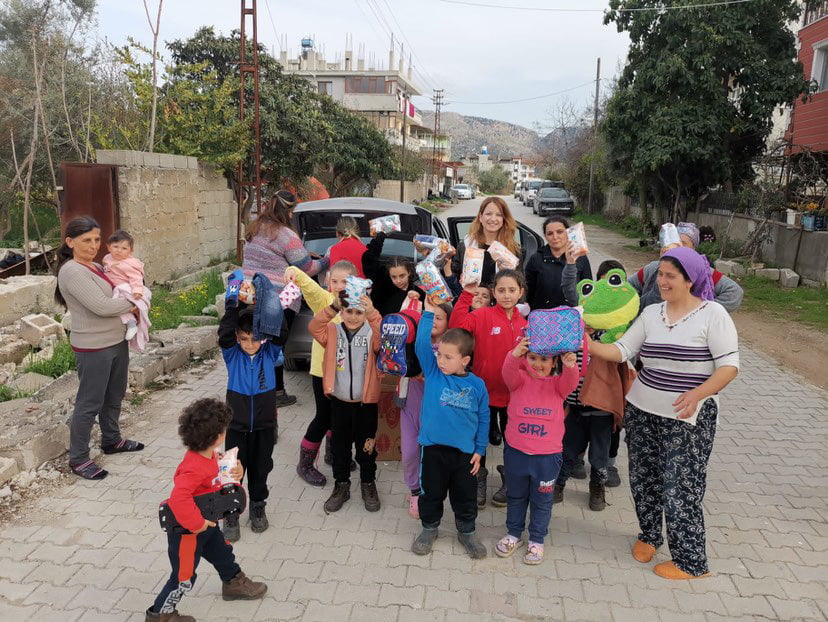




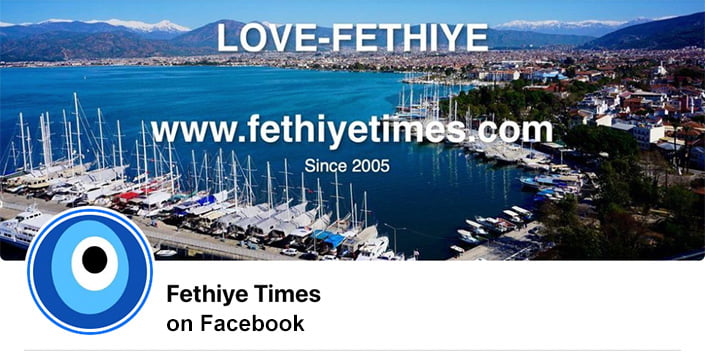
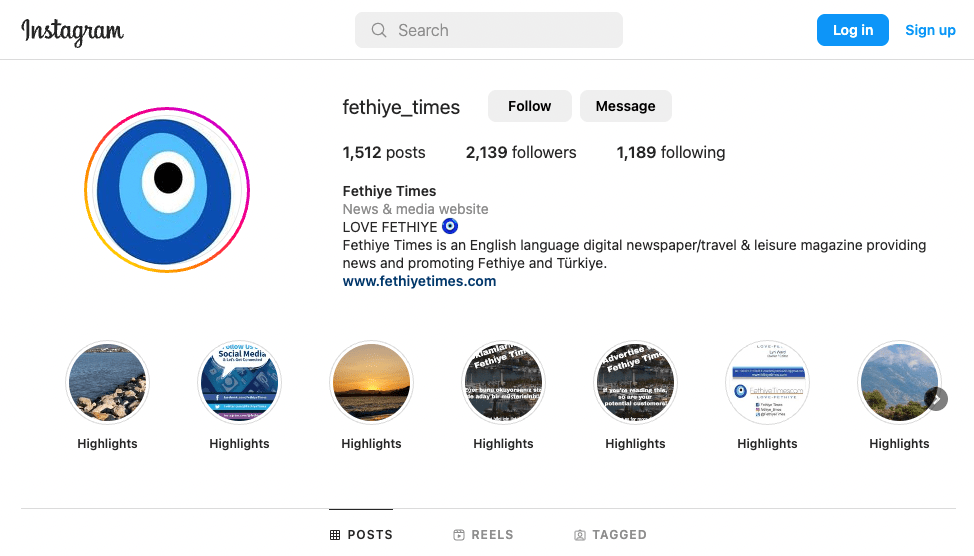
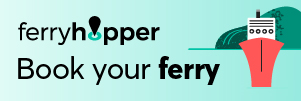
One Response
Well done Mehmet Bee
Geçmiş Olsun Türkiye’m